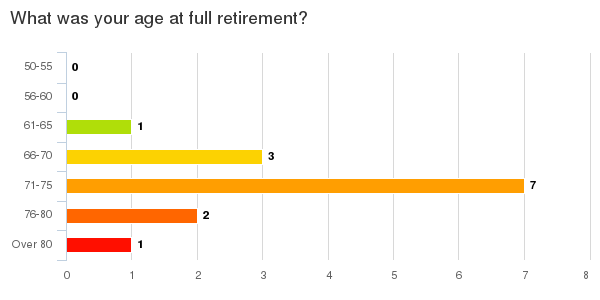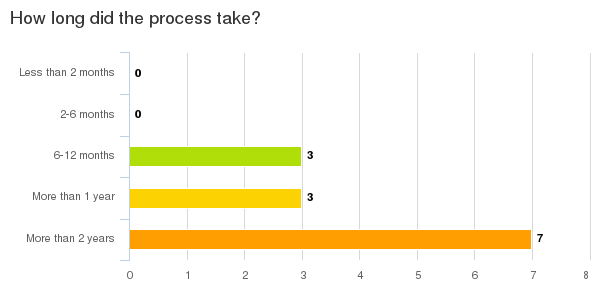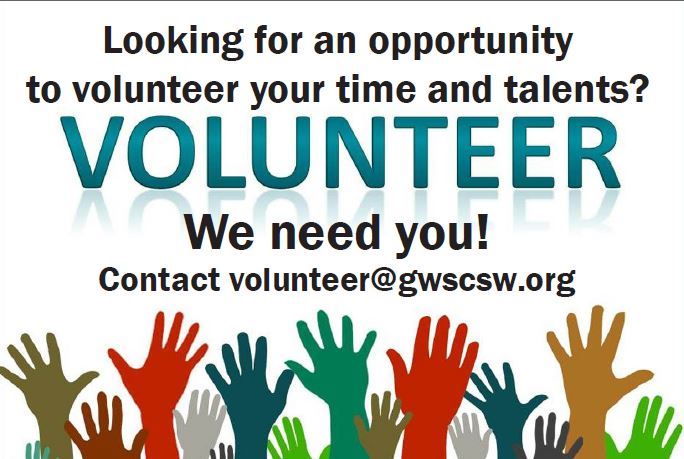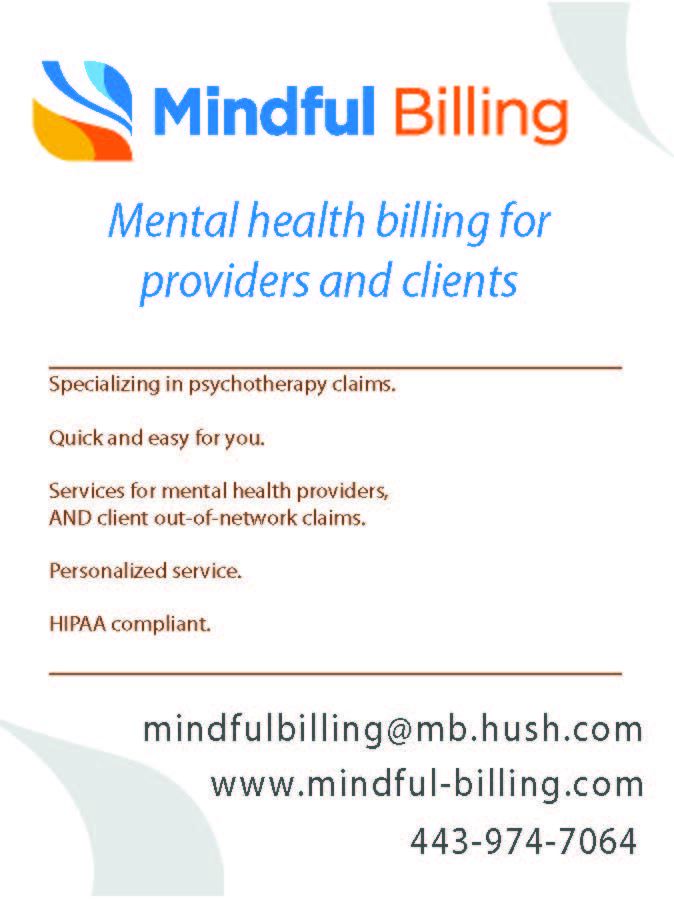In This Issue | December 2018
Upcoming events
* Additional events will update as they are added to the calendar |
President's Message
Mary Moore
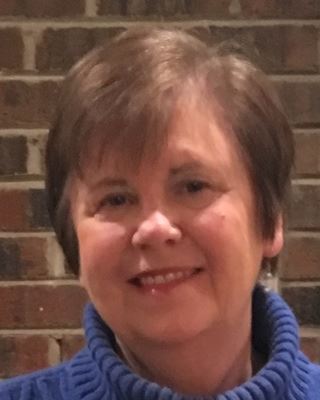 What a time we are in! I will gladly give you an update on what has been going on with the Society, but first I just have to say a few things about the last few months in our country. One of the key components of social work is supporting and empowering those who are marginalized in our society. Leading up to the midterm elections, and following them, we were horrified by a number of mass shootings, some targeted at minority persons, some apparently more random. Calls were made to “tone down” the political rhetoric, which has been perceived by many as contributing to the increase of hate crimes and violence we have seen the past few years. I think many of us are trying to make sense of it all.
What a time we are in! I will gladly give you an update on what has been going on with the Society, but first I just have to say a few things about the last few months in our country. One of the key components of social work is supporting and empowering those who are marginalized in our society. Leading up to the midterm elections, and following them, we were horrified by a number of mass shootings, some targeted at minority persons, some apparently more random. Calls were made to “tone down” the political rhetoric, which has been perceived by many as contributing to the increase of hate crimes and violence we have seen the past few years. I think many of us are trying to make sense of it all.
I remember in my social work training, learning about the “melting pot” and how it is important to add the cultural qualities and practices of new citizens to our American culture, not erase them. This is one of the great strengths of our unique country. We are the sum of many parts. We are NOT homogenous. But not everyone sees it that way. Many are threatened by new ways of life which are not exactly like our own, by people who “don’t look like us.” The unfamiliar is a threat until it becomes familiar.
When our government was first formed in the 1700’s, many of us did not have equal rights. Over the last two hundred years we have fought for and won some rights. This is still in progress. Even though we had our first African-American President, there is still so much systemic discrimination and police brutality against people of color. Even though same sex couples can marry now, there is still a lack of discrimination protection under the law for gay, lesbian and especially transgender persons. We almost had a woman President and many women won office this year, but we still do not have equal representation in Congress and the board rooms, and our reproductive rights are being challenged.
I also learned that those who have power, do not easily relinquish it. While we continue to have “peaceful transfer of power in our country”, from one party to the other, and we live as a “country of laws”, we also see the struggle between those who are seeing their power slipping away and those who are tired of being oppressed rising up. This creates a cauldron of passion, which seems to become more intense all the time. I see it as a “two steps forward, one step back.” As we make progress, those in power push back.
What is our role as social workers and specifically clinical social workers, in this time of class and ethnic conflict? As clinical social workers, we focus on the “micro” aspect of social work. We work with individuals, one at a time. Our clients have many problems, and this type of cultural and political upheaval adds stress to us and to our clients. As others have said, “we are the helpers”. We help support those who have been hurt and who are trying to recover. We help clients regain or gain for the first time, their sense of self and value as a human being. We champion those who have no champion, one at a time.
In our spare time, we march, visit our representatives, contribute and make phone calls. We collaborate with others to support candidates whom we believe will stand up for us. We vote. And that is what over 100 million people did on November 6. The highest turnout for a midterm election ever. And now we will see what the results of that election will be…. The struggle for power continues.
On the local front, since July we have had our first Board meeting and three Executive Committee meetings; a fantastic Kassabian Conference; many CE workshops; a growing focus on early career; a successful membership drive; a great new member brunch. We added some additional questions to member profiles so that we can better target our programs; if you have not yet, please visit your profile on our website and answer the new questions.
The Clinical Social Work Association, our national counterpart, has ended the pilot program where regional chapters provided direct financial support and individual rates were lowered. It turned out to not be financially feasible. CSWA continues to do important work advocating for our profession and our clients at the national level. Membership fees for our chapter members have returned to the reduced rate of $100; the $35 rate has been phased out. If not belonging to GWSCSW or other large regional CSW chapters, the annual membership is $150. We worked closely with them to resolve how we wanted to go forward.
We want your input and participation. Please feel free to contact any of our leadership to help us make this Society one that is valuable to you.
Fall Brunch Photos
The fall brunch was a tremendous success. Over 20 people attended this annual gathering where new and current members got to know eachother and share a delicious spread. Thank you to Cynthia Crane for once again opening her beautiful home to host GWSCSW members. Below are some photos from the fall brunch. We hope you all keep your eyes open for the Spring brunch gathering -- this is always a fun, yummy event!
Save the Date: Ethics with Frederic Reamer, PhD
April 7, 2019
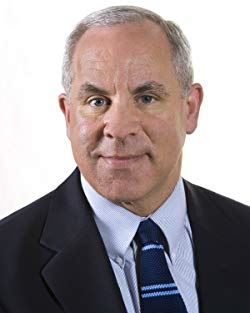 The largest GWSCSW event of the year – actually held every other year – is always the provocative Spring ethics conference with Dr. Frederic Reamer. Offering 6 Category 1 ethics CEUs, it allows us all to meet ethics and general continuing education requirements.
The largest GWSCSW event of the year – actually held every other year – is always the provocative Spring ethics conference with Dr. Frederic Reamer. Offering 6 Category 1 ethics CEUs, it allows us all to meet ethics and general continuing education requirements.
Dr. Reamer, a professor in the graduate program of research, Rhode Island College School of Social Work, has vast experience in health and mental health, criminal justice, public welfare, and of course professional ethics. He was chair of the Technology Standards Task Force for the 2017 publication, “Standards for Technology in Social Work Practice,” put out jointly by NASW, ASWB, CSWE and CSWA. He is frequently called upon to participate in ethical/legal decisions related to events in the news and to testify as an expert at court hearings. Dr. Reamer is universally recognized as one of the most dynamic and sought-after speakers in the field of social work.
While the precise title of the conference is yet to be determined, Dr. Reamer will certainly address the updated NASW code as well as the brand new technology standards. With ever-increasing use of Skype, and other electronic platforms, Facebook and social media, this conference will be particularly relevant to all of us in social work.
There is always plenty of time for questions and lots of animated discussion between attendees and Dr. Reamer; members find this conference not only educational but fun as well. Hope to see you April 7. You’ll receive more information and details in the coming months.
GWSCSW Senior Seminar Survey Report: The Inside Scoop on Retirement
 Grace Lebow
Grace Lebow
Later career clinical society members, and those members who are retired, were recently invited to participate in a survey about their retirement process. The purpose was to share experiences and wisdom with society members who are thinking ahead about retirement.
In the September issue of News & Views, we reported on the early stages of the journey to retirement: the Decision and Planning Stages. This article will focus in on the later stages, which I have named the Actualizing Stage and the Done Deed Stage.
THE ACTUALIZING STAGE
Here is Beverly Magida as she looks back on the later part of her journey, once she made the decision to retire. (Beverly was 66 when she retired after 30 years of clinical practice. She took a year to allow enough time to transition for herself and for her clients.)
“I received support and encouragement from other clinicians, including my office mate and friends and members of my GWSCSW Retirement Seminar Group, led by Rebecca Harrison.
I had numerous mixed and ambivalent feelings about giving up the work that helped identify who I was for the last 30 years, and provided me financial security and independence, which has always been important to me, not to rely totally on my husband for financial support. But my work was most importantly a means of feeling productive in an area that I felt successful and competent in, and now the future was uncertain in terms of how I scheduled my time and what else could give me that sense of productivity and success and well being?
Fortunately, I have always had many pursuits other than work, i.e. travel, two book clubs, tennis 5x weekly, pickle ball, skiing, hiking, yoga, cooking with my husband, bicycling and lots of different friends with many varied interests. This really has proven to be my life line, as I am very occupied and connected and feel excited about each day, without that rushed feeling I had when I also worked.
The first weeks and months of retirement were very different because I was not going into my office, but at that time in December, I was busy with the holidays and cleaning out my basement of accumulated items from the last 50 years. It served as a transitional buffer in changing from one type of schedule to another.
As time went on, I was feeling a loss of the part of my identity that I have had for 30 years. Yet, I also realized that the caring, empathic, and analytical parts of me will always be there, but not in the official capacity of a therapist seeing clients. Those parts come out in so many other ways in the roles I play in my life. For example, in reading a particular book, I see myself often wanting to go deeper into the character, or in experiencing another culture, appreciating and learning about differences in others and realizing how tolerant and open-minded I am.”
Beverly’s advice:
“Pre-retirees out there: Try to be strategic in your plan to retire and give yourself plenty of time to ease into ending your work life. Most importantly, develop interests outside of work that are fulfilling to you so that the transition will be easier. Also, have supports and friends you can connect to during this process and afterwards. Be kind, gentle and compassionate with yourself in this journey to explore parts of yourself that have not necessarily been defined. Give yourself permission to become more comfortable with discomfort!”
Thank you, Beverly for sharing your story and wise words.
THE DONE DEED STAGE
The following is more sage advice to pre-retirement colleagues gleaned from comments from the rest of the survey respondents.
- Get some financial planning advice to guide you toward a financially comfortable future.
- Have friends and colleagues you can talk to about your retirement concerns.
- Join a GWSCSW Senior Retirement Seminar for support, guidance and tips.
- Research the expertise and cultivate relationships with the people to whom you will refer your clients
Finally, the most often stated advice was: Plan, Plan, Plan and Take Your Time and Do It Gradually.
The above charts show the length of time for implementing a retirement decision and the average age at full retirement. The average age for our clinical society is older by about 12 years than the average retirement age in the United States, at about 63, according to a U.S. Census Bureau report updated in July, 2018.
For your interest, the same report informs us that the average retirement age varies by state, and in states with a higher cost of living, such as in the New England area, the average age is higher. At the same time, people who cannot find work must take retirement earlier than desired. One of the earliest retirement areas is the Appalachian region.
We hope that those of you who are yet to retire will benefit from our later career and retired GWSCSW members. If you have thoughts or questions about this study, or can add your experiences to the findings, please send along your comments for the next edition of News and Views.
 POSTING TO THE GWSCSW LISTSERV - To post to this group, send email to: listserv-gwscsw@googlegroups.com
POSTING TO THE GWSCSW LISTSERV - To post to this group, send email to: listserv-gwscsw@googlegroups.com
If you are not on the listserv, contact admin@gwscsw.org
Kassabian Conference: A Moving Experience
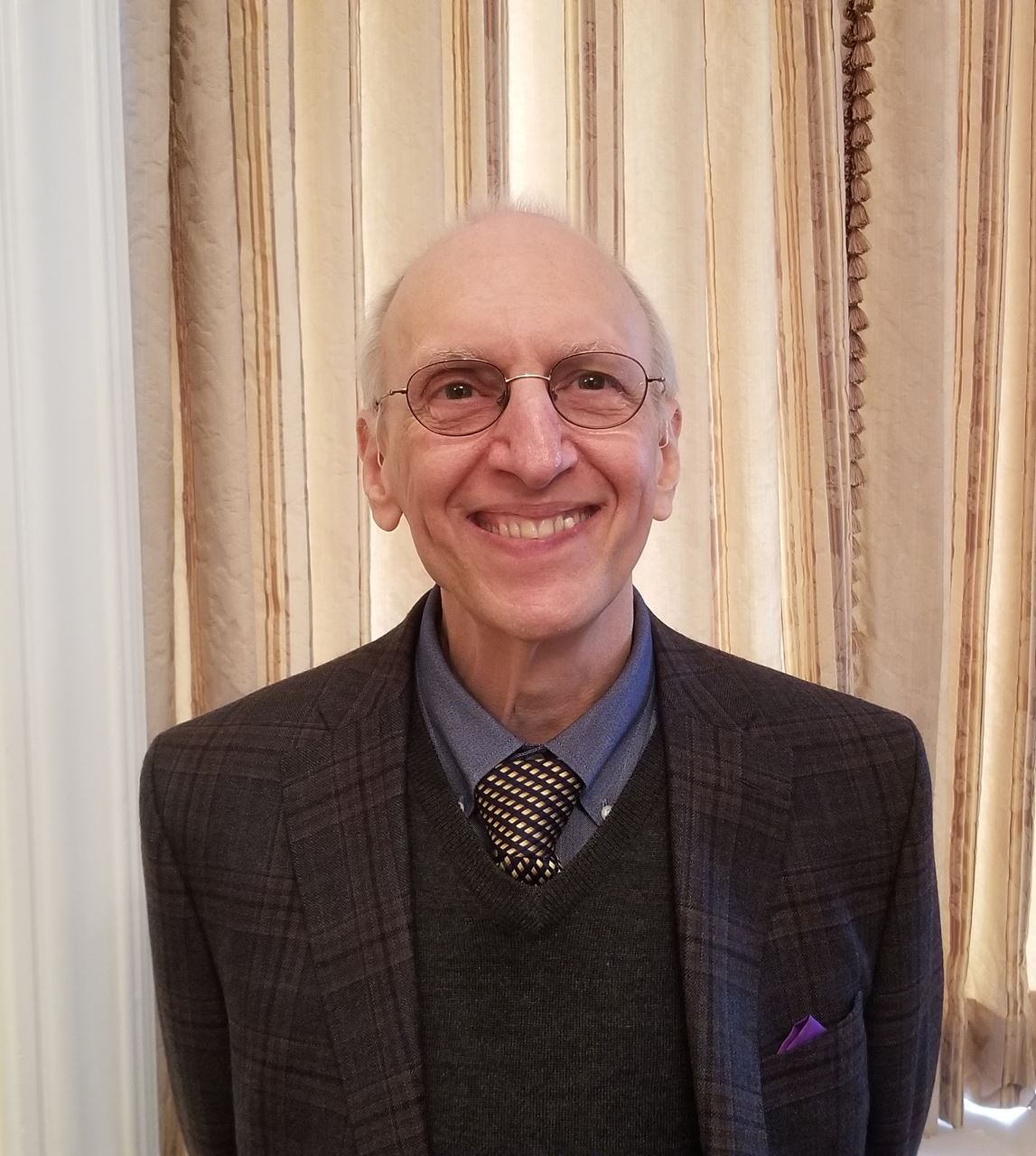 Susan Post
Susan Post
Over 90 GWSCSW members and guests attended the Alice Kassabian Memorial Conference on November 3 at the Cosmos Club in DC to hear speaker William Meyer, MSW, from Duke University, discuss the history of the DSM and LGBTQ+. Entitled “When LGBTQ+”Cured” Psychiatry - The DSM history you never knew: An Ethical Retrospective,” the multimedia presentation explored past conceptions of homosexuality as an illness to be cured and traced the evolution of thought up to the present legality of gay marriage rights.
Meyer shared striking stands taken by analysts and researchers, who for decades dominated thought within the American Psychiatric Association, on gays and lesbians as well as non-binary gender identity. The psychological and societal damage done to so many patients, and the LGBTQ+ community in general, was enormous. Only gradually did some psychiatrists begin to see non-binary, non-heterosexual choices as something other than a personal choice and to argue against conversion therapy. Parents and families of gays, lesbians and transgender individuals began to speak out publicly. Eventually, homosexuality was eliminated from the Diagnostic and Statistical Manual as a psychiatric illness and appropriate support was given to the LGBTQ+ population by most in the mental health field.
The conference was not only extraordinarily enlightening but also especially personal and emotional for attendees. There was a real sense of camaraderie and even relief as audience members asked questions and shared personal or treatment experiences. At the end, everyone thanked Mr. Meyer profusely for his honest, empathic and unsparing account of LGBTQ+ history.
GWSCSW MENTOR PROGRAM
Nancy Harris
The mentor program is a GWSCSW membership benefit designed to connect new therapists (or new to the area) with more experienced therapists. So far this year 30 mentees have been introduced to mentors. Reasons for seeking mentors include professional development, starting a private practice, negotiating a new clinic and supervisor, unfamiliarity with the DC metro area, questions about professional direction for those new or even still in grad school, licensing and continuing education.
Mentees have expressed enthusiasm for the program, citing that it helps with their anxiety about starting in the field and clarifies their goals. Alyce Louise Bertsche says, “My introduction to GWSCSW was the new member brunch, where I heard about the opportunity to be paired with a mentor. Everything about the process of getting a mentor was easy, and the pairing was perfect. I was initially interested in help job hunting. I had lunch with my mentor and she kicked me out early because she was concerned I would be late for my job interview. I wasn't, in fact I got the job, so I consider Cindy my good luck charm!"
The mentor program is beneficial for mentors too. Many have participated in the program for 10+ years. Mentor Beverly Magida says: “I was very excited to hear from my new mentee that she had secured a part time position at Center for Discovery, a residential treatment program for eating disorder adolescents. Previous to her offer, we had role played some questions they might ask her about this client population, so I felt very pleased for her that the time we spent together had helped her find a job. My mentee told me that doing the role play really prepared her for the interview, and she wanted to continue seeing me for support in her new position. Being a Mentor has been very gratifying, as I enjoy providing support and guidance to new social workers.”
For information about getting a mentor or becoming a mentor, please contact Nancy Harris. nlharris1214@gmail.com; or at (301) 385-3375.
Legislation & Advocacy | Federal
Message from the CSWA President: In this Time of Violence (October, 2018)
In this time of violence, the pipe bombs which thankfully harmed no one, the shooting at a supermarket, the tragic deaths of 11 members of the Tree of Life synagogue while at prayer, and the anticipated aggression against refugees from Central America, CSWA would like to extend our care and support to all personally affected by these terrible recent and future events. The verbal escalation of hate and the actions that it promotes in our country is frightening and inescapable. We must do better to counter the violent words and destruction to which they lead.
As the wonderful Fred Rogers, who lived in Squirrel Hill where the Tree of Life synagogue is located, said, “When things go wrong, look for the helpers.” We are the helpers. Let’s do all we can to fulfill our mission and prevent the demeaning of others. We must confront the grief and helplessness so many of us feel in the face of this hate and violence. Together, in our practices and our lives, we can express the alternative – containing our rage to avoid harming others – and hope that our fellow citizens can still listen.
Don’t forget that CSWA (www.clinicalsocialworkassociation.org) is your national voice, the Voice of Clinical Social Work. If you haven’t renewed, do it today. If you haven’t yet joined, do it today. As a membership organization, CSWA needs a collective individual membership to be effective in our advocacy and educational work on your behalf.
Melissa Johnson, LCSW, President, Clinical Social Work Association
mjohnson@clinicalsocialworkassociation.org
Legislation & Advocacy | District of Columbia
Margot Aronson
The legislative picture across our country and in Congress is dramatically different with the recent election cycle.
New faces could mean significant changes in the leadership and/or makeup of the DC Council committees we monitor and interact with. These are primarily the Committee on Health, which deals with a range of health and mental health issues, and has oversight of the Board of Social Work, and the Committee on Human Services, which monitors Child & Family Services, disability services, and youth affairs. Watch for updates on the listserv and in the next News & Views.
No LICSW on the DC Board of Social Work
Velva Spriggs, LISW, is the current Chair of the DC Board of Social Work; she serves with Danielle Nelson, LGSW, and Seleya Moore, the consumer member. Velva is an excellent Chair, but the difficulties of managing the responsibilities of a five-member Board with only three members should be self-evident, especially given that the largest category of licensees by far – LICSWs – are not represented.
Licensed bachelor-level social workers are not represented on the Board at present, but this is not surprising, as their overall number is small and few reside in the District, a requirement for serving. However, there are several thousand LICSWs, and many reside here. What about you?
GWSCSW members who have served say that the experience was challenging and very, very rewarding. The website of the Mayor’s Office of Talent and Appointments has the information you’ll need about how to apply. Please DO!
CEU and License Renewal Notes
All our DC licenses will come up for renewal on July 31, 2019. For this renewal, the 40 hours of Continuing Education Units must include 6 hours of Ethics (face-to-face) and 2 hours of LGBTQ training. Only 12 hours of the total 40 can be online.
And here’s an FYI: The best place to check on current license and supervision expectations and requirements is the Board’s website (https://dchealth.dc.gov/service/social-work-licensing). If you have a question, you can call the Board: Mavis Azariah Armattoe, 202/442/4782, or email mavis.Azariah@dc.gov
When there’s confusion, sometimes Adele Natter and I can help clarify; we represent GWSCSW and CSWA at the Board’s monthly Open Session (10 AM on the 4th Monday of each month). We maintain a mutually collegial relationship, sharing information with the Board and Michael Francum of NASW-DC Metro, who also attends when he is able. Open Session generally lasts about an hour and a half, depending upon the concerns raised; once adjourned, the Board begins its Executive Session. The public is welcome at the Open Session, and if you decide to attend, you’re more than welcome to join us for coffee and a danish after.
Margot Aronson, LICSW, chairs the GWSCSW L&A committee for DC. A past GWSCSW president, she has also served as newsletter editor and director of Legislation & Advocacy. Margot currently advocates on mental health and LCSW practice issues for us all at the national level as the Clinical Social Work Association Deputy Director for Policy and Practice.
Legislation & Advocacy | Maryland
Judy Gallant
Writing this prior to Election Day, it is hard to know what the legislative picture will look like when you read this. Will Maryland have elected a new Democratic Governor, Ben Jealous? Or will Republican Larry Hogan maintain his position? It is unlikely there will be major changes in the Maryland legislature, but shifts in Committee Chairmanships can make a difference.
There was a question on the listserv recently about the adequacy of CareFirst identifying clinical social workers as provider referral resources. We have been in touch with CareFirst, and they will be making themselves available on a conference call to discuss and try to rectify the problems. Look for follow-up on this issue on the listserv or in the next newsletter.
Another question was raised on the listserv by a member who wrote an evaluation of a client for Montgomery County Schools to certify an emotional condition and thus qualify the young person for special provisions for in-home or hospital educational services. Our member received a response saying that, in Maryland, only a psychiatrist or a psychologist is considered qualified to certify this. Our lobbyist researched this issue and found that this is a Maryland State Department of Education (MSDE) regulation that governs home and hospital services. We are investigating this further to find out how to change this antiquated regulation-whether it can be done through the MSDE, or if legislation will need to be proposed to create new regs. Stay tuned!
Marylanders received information from our Board of Social Work Examiners in October about new regulations that were open for public comment until November 13. This is the result of the legislation passed in 2017 regarding BSWE (written up in our June, 2017 issue of News & Views). We have been going over these regs to see if any public comment is necessary, and will let you know if we do make comments. We hope you also took note of this and may have taken a look at these yourself. Please know that your legislative committee can always use your help in reviewing something like this. Please feel free to contact me any time at judy.gallant@verizon.net.
Judy Gallant, LCSW-C, is the director of the Society’s Legislation & Advocacy program, as well as chair of the Maryland Clinical Social Work Coalition, our GWSCSW legislative committee in Maryland. She maintains a private practice in Silver Spring.
Legislation & Advocacy | Virginia
Judy Ratliff
Joe Lynch, Chair of the Legislative Committee of the Virginia Society of Clinical Social Work (VSCSW), several other members of the VSCSW, our lobbyist Sue Rowland and I met with Senator Creigh Deeds, Chair of the Mental Health Services in the Twenty-First Century (MHS Committee), on September 27, 2017. At that meeting, Joe Lynch spoke on behalf of both clinical societies stating that several Code sections contained the language "treating physician or clinical psychologist" and needed to be updated to include other licensed clinical mental health professionals. He recently wrote a follow-up letter to Senator Deeds requesting that this be considered for 2019 and asking whether the "updated language" legislation might be a type of legislation that could be put forward from the MHS Committee as a whole. Joe did his own research on the affected Codes and found that other licensed mental health providers in Virginia far exceeded the number of psychiatrists and psychologists in the state.
Joe further defined this legislation as:
- updating language in the Code;
- seeking to enhance the client's experience through the mental health system by ensuring that the licensed mental health provider that is most involved in the client's therapy is part of the process; and
- is client advocacy legislation that does not require additional funding.
Both societies owe a very large "Thank You" to Joe, whose tireless efforts and rigorous research have underpinned the success of many of our joint efforts.
VALEAP (VIRGINIA LAW ENFORCEMENT ASSISTANCE PROGRAM)
VALEAP is an all-volunteer program that was modeled after a highly effective FBI program. Janet Howell, a senior Senator from Virginia, helped Virginia law enforcement officers secure $100,000.00 a year in the budget for this peer-run program. A representative group of Virginia law enforcement officers met with her in Richmond to thank her. The program is designed to help people in law enforcement process the trauma they suffer in the course of doing their jobs.
MEDICAID
Legislation was recently passed in Virginia that includes expansion of Medicaid coverage to approximately 400,000 adults, most of whom are employed. Virginia is also creating a new unit at Joint Audit and Review Commission (JLARC) to constantly evaluate the program and recommend improvements. According to Janet Howell, it is estimated that Virginia will receive about two billion dollars a year from Washington for this expansion. This money will be used to provide professional help to people with substance abuse and mental health problems, as well as being an economic stimulus and job creator for our state. Funding will also be focused on preventing those with mental illness being sent to jails, which is often where they end up. As a compromise with Republican legislators (some of whom joined with Democrats to pass this legislation), a work requirement for those Medicaid recipients who can work was included in the legislation. (Thanks to Janet Howell for the medicaid and VALEAP updates.)
.Judy Ratliff, LCSW, is Chair of the Society’s Legislative Committee for Virginia. In addition to her years of GWSCSW service, Judy has served on the Fairfax County Long Term Care Coordinating Council and in Leadership Fairfax. She began her professional life as a medical social worker, has taught medical and social work students for the University of Maryland, and is currently in private practice in Fairfax.
MEMBER BookS

Loveseed: The Template For Birthing A New World
Kathleen Hanagan
Combining dramatic real-life experiences with mythic tales and an exploration of the need for greater depth, I have drawn on my 30 years as a psychotherapist and spiritual adventurer to weave threads of ancient wisdom with today’s emergent intelligence. It is my hope that readers will learn how to grow their loveseeds by embracing personal transformation as a way to change a culture that has lost its soul. It’s the perfect handbook for any therapist to give a client who is sincerely wanting to transform.
 emma and her selves: a memoir of treatment and a therapist's self-discovery
emma and her selves: a memoir of treatment and a therapist's self-discovery
May Benatar
emma and her selves is the story of a long-term psychotherapeutic relationship between a woman with multiple identities, someone diagnosed with Dissociative Identity Disorder. Dr. May Benatar shares some of her own process as a therapist discovering the ubiquity of trauma in both the general population and in clinical populations. As she begins to treat victims of childhood sexual abuse she comes to understand that dissociation and the creation of sequestered part-selves are the common consequence of trauma.
Along the way she meets Emma and her many selves and is changed over the 20 years of their work together. She learns that "parts" exist in all of us, we all have many faces, many states of mind that are called forth in different circumstances. The difference between Emma and more ordinary folks is the degree of access we have to these states and our ability to integrate them within a whole personality. Dr. Benatar becomes more familiar with her own parts in the process of treating Emma.
There are obstacles and triumphs, mystery and spiritual encounters threaded throughout the narrative.
POETRY: No Words Become A PoemWendi R. Kaplan From no words we have found words and built a bridge…
Most of us were stunned at first by the way Dr. Christine Blasey Ford was treated when she courageously testified at the Kavanaugh hearings. Her clarity, her authenticity, her quiet yet firm demeanor stilled a nation. Then it hit us like a boulder. Seeing white men, mostly older, stare at her without really hearing, without seemingly wanting to see truth, trying to trap her. Our anger ignited and we resonated with her. We do understand. We have been mistreated, humiliated, raped and beaten. We have sat in rooms with others who have also been mistreated, humiliated, raped and beaten. We hear you Dr. Ford. We are you. So, in my anger and frustration, I reached out to you all, my community of therapists, and asked for words. Thanks to Eileen Ivey, Nancy Nollen, Mark O’Shea, Kelly Wells, Marie Caterini Choppin, Faith Lewis, Joal Ann Bennett, Lisa Joan Reardon and all of you who chose to remain anonymous and who sent words. Some are words you have heard from your clients as well as from your own hearts. I have used the words you have sent me to create a poem entitled “Thank You, Dr. Ford.” I also thought about titling it “WE Are All Anonymous” and “Words Fail Me.” In addition I changed the tenses and pronouns to make them congruent for this poem. The “I” in this poem is all of us. The “you” is Dr. Ford. Please indulge my taking poetic license. What we know is that words do matter. Thank you. Please feel free to write me at wendi.kaplan@verizon.net | Thank You Dr. Ford
I would prefer to remain anonymous. Your story, I always felt I had done something very wrong, You know And then Thank you for your courage. Words fail me. We hear you. YOU matter Dr. Ford. |
Out and About
May Benatar, PhD., LCSW recently had an essay published in the Washington Post . It's about the challenges and benefits of relocating in our 60's to the DC Metro area. Link: https://www.washingtonpost.com/business/2018/09/18/relocating-reinventing-can-still-be-big-adventure-when-youre-senior/?utm_term=.e7722bf50d45
In September, Michael Giordano presented on "Ethics & the Sex Therapist," exploring boundaries and dilemmas for therapists for the Integrative Sex Therapy Institute.
In October, Adele Natter was moderator for a panel discussion on the subject of sexual harassment. The wide-ranging discussion considered topics such as the various forms that sexual harassment can take: hostile work environments and retaliation claims, and whether 'tipping culture' creates an environment conducive to sexual harassment in restaurants. Possible bystander interventions were also suggested. Speakers included Janet Blank, a Director of Human Resources; Erin Hawkins, representing the hospitality industry; and Shana Brouder of the Jewish Coalition Against Domestic Abuse (JCADA).
Committee Reports
Continuing Education Committee
Patricia Demont | Leila Jelvani
cecommittee@gwscsw.org
We are still accepting applications for winter and spring of 2019. Do you have a topic that you know others are interested in learning about? Would you like to share your expertise? This is a great opportunity to highlight your experience while promoting your practice. For shorter presentations, consider offering a Brown Bag lunch topic, typically lasting 1 ½ hours.
Click here to submit a proposal. Once submitted, the proposal will be reviewed by the Education Chair and the Continuing Education Committee. Donna Dietz, GWSCSW’s Administrator, will work with planning/logistics regarding dates and location.
Education & Diversity Committee
Amy Johnson
Amy Johnson, Chair of the GWSCSW Education & Diversity Committee is holding an interest meeting for planning a regular book/movie/meet-up club on January 10. The meeting participants will look at :
- Size of group
- Location of group (fixed or rotating)
- Cost of group
- Open or closed
- CEUs awarded (Cat I or Cat II)
- Books/films to be discussed
- What constitutes a "meet-up"
- When to begin/frequency of meetings
If you have an interest in helping out with this program or have questions or would like to provide input, please contact Amy Johnson by January 3 at ajohnson@bigtreecounseling.org.
Early Career Committee
Karin Lee | Katie Smeltz
earlycareer@gwscsw.org
In the last quarter, the Early Career Committee has taken a break as the two co-chairs were busy pursuing their early careers! We are considering doing a combined event with the wine-and-cheese committee. In addition, one of the co-chairs has moved to Baltimore, so we will be polling members to see if there is any interest in a Baltimore-based Early Career Committee meeting. As a reminder, at our May Meeting we heard from Nancy Harris about the GWSCSW Mentoring Program. We encourage anybody and everybody to sign up for this program if you have not already done so. It is so helpful to have an experienced, warm, thoughtful colleague outside of your job or graduate program to help you test ideas and consider your next steps. It's a great GWSCSW benefit that is particularly helpful for us at the Early Career Committee stage! Meanwhile, if anybody is interested in volunteering with with Early Career Committee, please contact us.
Legislation & Advocacy Committee
Judy Gallant
dirlegislation@gwscsw.org
We had a very successful Legislative Luncheon at Normandie Farms on November 17, 2018. We had a wonderful presentation from our Virginia and Maryland lobbyists, as well as our L&A Committee chairs from DC, Maryland and Virginia. It was great to see many of you during this annual event.
Expand your impact, knowledge and friendships!
I would like to invite everyone to consider the exciting opportunities to influence legislators in each of our jurisdictions by joining your Legislation and Advocacy Committee! Now is a perfect time to do so, prior to the upcoming legislative sessions that begin in January in Maryland and Virginia. DC does not have the same legislative structure as do the two states, so anytime is a perfect time to join the DC committee!
It is widely agreed that given the political climate, local advocacy is currently the most important and effective way to influence the environments that affect our clients and in which we practice. It is not difficult to talk to people about subjects that we care deeply about, and that is the crux of what we do. Legislators, after all, are also people with their own families and own issues who, in general, care deeply about improving how government and society functions. We also review upcoming legislation and give important input, which is frequently recognized as helpful to crafting the final product. You do not need to be a subject matter expert to make a real contribution to our efforts.
Additionally, there are personal advantages to joining us. As you get to know others on the committee and they get to know you, they will think of referring clients to you. And if you have a specific interest, say maternal mental health, and have contact through committees, you might come to be a part of, that is yet another way people will come to think of you for referrals.
See individual jurisdiction articles for the latest updates. Be sure to contact one of us with any questions or suggestions you might have, or to join one of the committees: in DC, Margot Aronson, malevin@erols.com; in Maryland, Judy Gallant, judy.gallant@verizon.net; and in Virginia, Judy Ratliff, jratliff48@hotmail.com. We look forward to hearing from you.
Membership Committee
Cindy Crane, Nancy Harris, Catherine Lowry
membership@gwscsw.org
The Membership Committee sponsors two brunches per year at the home of Cindy Crane. The purpose is to welcome new members, inform them about the many ways GWSCSW can be helpful to them, and hopefully excite them about getting active in the program. Usually Board members and older members also come to the brunch. At last year’s brunch a new member actually ended up on the Board!
We just had our brunch on November 11, 2018. President Mary Moore welcomed the new members. People had an opportunity to meet and network. There was a lot of discussion about the Mentor Program and four people signed up to get a mentor. The leftover food was donated to SOME’s Jordan House.
Mentoring Committee
Nancy Harris
mentoring@gwscsw.org
See the article in this issue of News & Views for updates on the Mentoring Committee. Please consider becoming a mentor. We are always looking for mentors to meet with our early career members. Being a mentor is fun and only takes as much time as you are able to give - it allows you to give back to help those just starting off in the profession.
Please contact Nancy Harris if you have any questions about the Mentorship Program.
Newsletter Committee
Nancy Pines
newsletter@gwscsw.org
Your newsletter welcomes ideas and articles about clinical social work and practice. We are also very interested in hearing from members who have specialized knowledge or adjunct therapy practices they want to share.
Please consider your own life experiences and how they may have affected how you practice. One of the things I love about our profession is how we are always learning. Why not share your expertise and life lessons with fellow members? Send an email with your story/article ideas to newsletter@gwscsw.org. Thanks!
Social Media Committee
Chana Lockerman
socialmedia@gwscsw.org
The Committee is excited to continue the work of sharing exciting content related to social work and mental health. We are continuing to update the GWSCSW Facebook page with articles. Please visit the page, like or comment on the posts. Let us know if you have an idea about how to make the page more relevant to YOU. We are working on getting more traffic to the Facebook page. Please like the page if you haven’t already, and share the page with your colleagues! Feel free to email us at socialmedia@gwscsw.org if there is something you would like us to post about on the listserv. We are also available to field any personal questions you may have about your own social media pages and accounts. Contact Chana Lockerman: chana@rockcreekcounseling.com with any questions or suggestions for future Tech Tips columns.
Volunteer Committee
Beth Pascoe
volunteer@gwscsw.org
Tech Tips: protecting your Personal Information
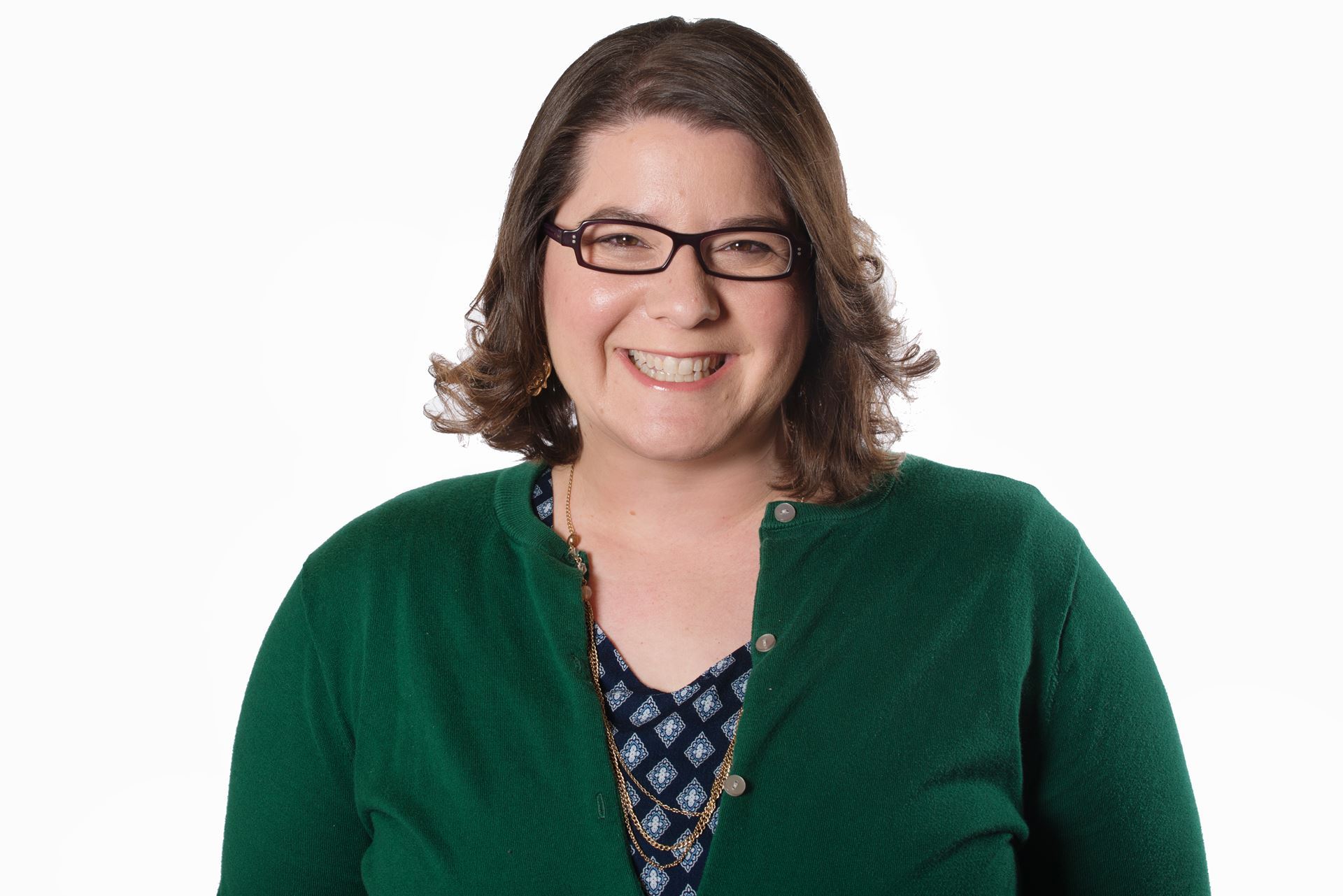 Chana Lockerman
Chana Lockerman
In January 2018, the new NASW Code of Ethics came into effect. The new Code includes 19 revisions that address the changing world of social work practice and technology. This column is going to address one of the revisions, a “reminder” to social workers that clients can learn about their social worker’s personal information through Internet searches and social media.
 To protect your private information on social media accounts to the extent possible, set your privacy filters to the most private settings that you can. Remember that information, even shared in private groups, is not private. Consider limiting the amount of information you share about yourself using a social media platform. Remember that once information is out on the Internet, it often cannot be taken back.
To protect your private information on social media accounts to the extent possible, set your privacy filters to the most private settings that you can. Remember that information, even shared in private groups, is not private. Consider limiting the amount of information you share about yourself using a social media platform. Remember that once information is out on the Internet, it often cannot be taken back.
There is so much information out on the internet, including information about each of us. You can do an internet search on yourself and see what information comes up. Chances are that your clients will see this same information if they try to learn about you using online resources.
While we often cannot control the information that is available about us online, we can try to find out what is available, limit the information we put on social media, and remember that the internet is a public forum.
classified advertising
Advertisements, accompanied by full payment, must be received by the GWSCSW by the first of the month preceding publication. Material should be sent to admin@gwscsw.org. For questions about advertising, call 202-537-0007.
Adolescent/Young Adult Therapy: CBT, DBT, PEERS®,MBSR-T, Medical Illness Counseling, Group Therapy. Powerful interventions for depression, anxiety, anger, perfectionism, fear, shame, rumination, social anxiety, ASD and more. Rathbone & Associates. Rely on Experts. 301-229-9490 www.rathbone.info. Professional CEUs: See our current schedule at www.rathbone.info, click on “Professional Trainings”. Current topics, quality speakers, practical skills. | Connecticut Avenue Spacious Office - Available Now Spacious, new floors and lights, built in bookcase, quiet, zoned, street entrance with parking. Office in two office suite. 4707 Connecticut Ave, NW. Available now. Please call: 301-299-2832 |
Classified Ads: 75¢ per word | Minimum price $15 (20 words)
Display Ads: Full page 7 x 9¼ $325 | Half page $250| Quarter page $125 | Eighth page $75
Electronic submission (JPG) preferred. Publication does not in any way constitute endorsement or approval by GWSCSW, which reserves the right to reject advertisements for any reason at any time.
About News & Views
Do you have thoughts or feedback about something you read in our latest issue? Perhaps something struck a chord?
We want to hear from you! Your opinions about clinical and legislative articles, practice-building tips and regular columns are most welcome. Send your feedback to: newsletter@gwscsw.org
Questions? Contact Nancy - npines12@aol.com
News & Views Committee
Nancy Pines, Editor
Newsletter Editorial Board: Sara Feldman, Adele Natter, Shoba Nayar
Advertising: admin@gwscsw.org
News & Views is published four times a year: March, June, September and December.
Articles expressing the personal views of members on issues affecting the social work profession are welcome and will be published at the discretion of the editorial board. Signed articles reflect the views of the authors; Society endorsement is not intended. Articles are subject to editing for space and clarity.
News & Views Submission Guidelines
Articles – Focus on your area of expertise and practice, ethical dilemmas, responses to events in the media or other topics relevant to clinical social work. Articles should be 500–700 words.
Out & About – Share news about you: an article you’ve written, if you’ve been in the news, taught a class, earned a new certification or are a singer, artist or writer. Submissions should be 50 words or less. Send all submissions to npines12@aol.com
Submissions will be reviewed and are subject to editing for space and clarity.
Next submission deadline: January 30, 2019
Need to reach a board member? Click here for the listing of the GWSCSW Board of Directors

